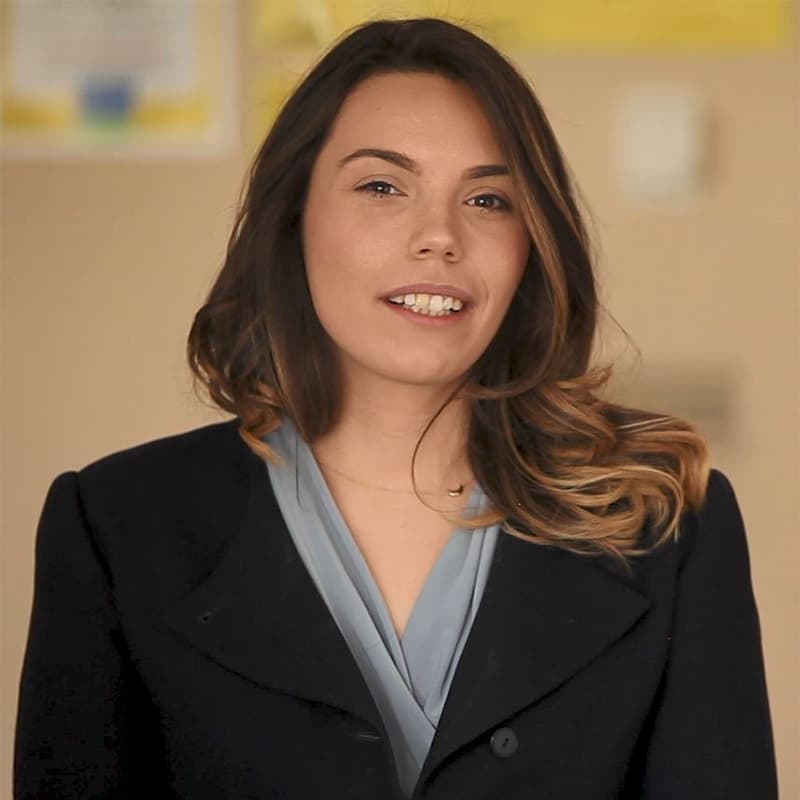Bachelor of Arts in Art with a Concentration in Art Therapy
Do you have a passion to help others through creativity and counseling? Art therapy is a human service profession that blends the disciplines of art, psychology, and counseling. Art is a universal language and it promotes connection and healing relationships with yourself and others.
The Art Therapy concentration is a focused study designed to lead to a graduate art therapy program. Albertus Magnus College is the only Master of Arts in Art Therapy and Counseling (MAATC) program in the state of Connecticut and is taught by dedicated, expert faculty.
What Makes Art Therapy at Albertus Different?
Engaged
Students
- Hands-on, experiential learning
- Interdisciplinary perspectives
- Emphasis on collaborative work
Great
Teaching
- Personally invested professors
- Small class sizes
- Innovative, well-rounded programs
- Resources and opportunities for research
Vibrant
Communities
- Lively extracurricular activities
- Campus-wide events
- Service and community engagement
Successful
Outcomes
- Active career counseling
- Opportunity-building networks
- Access to internships and professional experiences
The Albertus Art Therapy Degree Program
The therapy program at Albertus Magnus College offers students a strong vocabulary and practical experience in diverse art media and techniques. A concentration in art therapy provides students with the psychology courses needed to prepare for this rewarding field. Working with both psychology and fine arts faculty, students have the opportunity to engage in an interdisciplinary program, rooted in Albertus’ liberal arts core curriculum.
Art Therapy Student Perspective
Taylor Chamberlain graduated from Albertus Magnus College in 2017 with a BA in Psychology and Art and a concentration in Art Therapy.
“My Albertus experience has been one of character, confidence, and lifelong-relationships. My professors pushed me to pursue my goals and my dreams even when I wasn’t so confident about my ability to do so.”
Taylor received both the Bruce Sinkey Award for Excellence in Art and the Albertus
Psychology Department Award for Academic Excellence. She was also honored as a Class
Marshal for graduating with the highest GPA in her program. After graduation, Taylor
began working as an expressive arts coordinator.
Hear More About Taylor's Experience

The Albertus Art Therapy Faculty
Where Will Your Art Therapy Degree take You?
Possible career paths with a Bachelor of Arts degree in Art Therapy include:
Become a Certified Art Therapist
To become a Certified Art Therapist, you will need to obtain a Master’s Degree in Art Therapy. The Albertus M.A.A.T.C. program's 60 credit requirements to graduate meet all educational requirements for licensure as a professional counselor (LPC) in the State of Connecticut and is approved by the Education Program Approval Board (EPAB) of AATA.
Accreditation
The Masters of Arts in Art Therapy and Counseling (MAATC) program is accredited by the Commission on Accreditation of Allied Health Education Programs (CAAHEP) upon the recommendation of The Accreditation Council for Art Therapy Education.
The Art Department at Albertus Magnus College
With a choice of four concentrations and two majors, students are provided with a strong basic foundation in a variety of art areas, preparing them for advanced programs, graduate studies, and careers in art-related professions. Courses are designed to give students an extensive background in the history of art and an opportunity to achieve competence in studio art areas.
The B.A. degree offers a combination of liberal studies and professional art training. Although requirements for individual fields such as Graphic Design, Fine Arts, and Photography vary, matriculating students may earn the B.F.A. degree by completing 127 credits. In addition to General Education and General College Requirements, a major must take 3 Art History courses (9 credits), and 60 credits in Studio Art.
Learn moreArt Therapy Courses
Upon completing the program of study in Art with a Concentration in Art Therapy, students will:
- Develop media based competency;
- Develop capacity for creative thinking;
- Strengthen written communication;
- Strengthen critical reading skill;
- Develop capacity for appreciating works of art.
Interested in learning more about the diverse courses offered at Albertus?
Art Therapy Masters Programs
Masters
Programs
Become Part of the Albertus Art Therapy Community
Have questions about Art Therapy? Ready for the next step?
Let us know how we can help plan your future.
Request Art Therapy Undergraduate Information
The Albertus Art Therapy Degree Mission Statement
The mission of the Department of Arts is to lead our students to a lifetime of creative production while preparing them for a rewarding professional career. Our curricula combine the humanistic offerings of a Liberal Arts college with a broad and integrated training in the arts.
Our program of study affords students the opportunity to prepare for a variety of professions in a variety of media production. Blending traditional liberal arts with specific career-oriented coursework, students are given the foundations, skills, and ethical perspectives to be successful in either mass media careers or entrepreneurial individual practice, and to be productive members of society. The combination of scholarly search for knowledge, development of essential skills, and the application of these in society guide the major in keeping with the Mission of the College.

